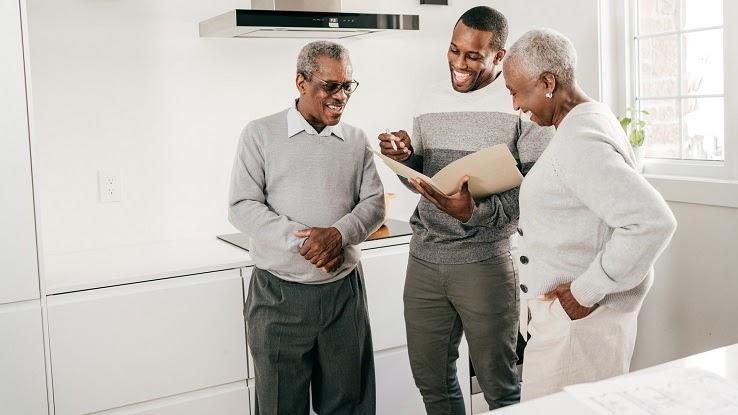What Does the Executor of a Will Do?

Losing a loved one is unquestionably difficult. But finding out that you’ve been named in their will as the executor of their estate can add another layer of complexity to the situation. It’s not a duty to take lightly; the executor of an estate, sometimes called an administrator or personal representative, has an important job to do and a multitude of legal requirements to follow. But the decision to serve as an executor can ultimately give you peace of mind knowing that you helped see the deceased’s wishes through in the way they wanted.
Anyone appointed to be the executor of a will has a variety of important responsibilities to uphold. Understanding the basic process of probate and the duties of an executor can help you better prepare to serve in the role.
What Is an Executor?
When a person dies, it’s normal for them to leave behind debts that need to be repaid and assets that need to end up in the right hands. Many people specify how they want their assets distributed by documenting these wishes in a will before they die. During the probate process the assets will go to beneficiaries and the debts will be paid off — but these processes require the supervision and actuation of a specifically designated person in order to happen properly. This person is the executor.

The executor has a legal duty to carry out the wishes of the deceased, as outlined in the will, and to handle all of the deceased’s final affairs. The deceased can appoint anyone to serve as their executor; there’s no requirement that the executor is a close relative.
The executor of the estate is a fiduciary of the deceased person, which means this person must act in the best interests of the estate and of its beneficiaries. Because the deceased person cannot speak for themselves, the executor follows their wishes as described in the will. When someone dies without a will, or if their will doesn’t specify an executor, a probate court can still name an executor. And, the executor’s responsibility is still to use the deceased’s estate money to pay debts and distribute assets.
How Are Executors Appointed?
Although a deceased person can choose an executor by naming them in their will, the executor still needs a probate court to officially and legally appoint them to the role. Each county around the country has a probate court that oversees debt payments and asset distributions for the deceased. Although people have the right to list an executor in their will, that choice must be presented to a probate court. The legal appointment of an executor can only be made by a probate court judge.

When a will is legally sound, the probate court judge will often appoint the same executor the decedent initially chose. If the deceased person didn’t choose an executor, the probate court appoints one based on local laws. In most cases, this court-appointed executor is the deceased’s next of kin, which is their closest adult relative. It could be a surviving spouse or an adult child. The deceased may have also named contingent executors, which are people who may serve if the original choice is unable or unwilling to serve in the role.
What Are the Duties of an Executor?
An executor is essentially in charge of managing the estate, and they also have a legal duty to act in the best interests of the estate and any beneficiaries named in the deceased’s will. It’s possible an executor may not need to serve at all in certain cases, such as if the deceased arranged for all their assets to avoid probate and had no debts. However, in most cases probate is required in order for beneficiaries to legally obtain ownership over the assets they’re inheriting.

The executor’s first duty is to file paperwork with the probate court. This includes presenting the probate court with an original will and a death certificate and filing a petition that asks for the will to be probated and for the named executor to be officially appointed to the role. This gives the court enough evidence to officially appoint the executor. To get the original will, an executor may need to contact the deceased’s lawyer.
After the probate court authorizes the executor and initiates the probate process, the executor is in control of the deceased’s assets. The executor must identify all of the deceased’s debts and assets and contact all of the decedent’s named and potential beneficiaries, along with all known creditors. Even if the will says that the family won’t receive an inheritance, close relatives also need to be contacted if local probate laws provide any potential for them to receive assets. Sometimes, all close family members are deceased, and the executor has to conduct a search for any surviving long-lost relatives.
Funeral expenses, probate court fees and the cost of hiring a lawyer can all be paid with the estate’s funds. During the initial stages of probate, the executor must run a local newspaper advertisement announcing that any debtors should come forward. Once all debts are established, the executor uses money in the estate to pay them off. The executor can sell assets to pay off debts, if necessary.
After the debts are handled, the executor turns their focus toward assets. Before they can distribute anything, the executor must create a detailed list of everything that the estate owns. All assets, whether they’re couches in storage or millions of dollars in a savings account, must be accounted for by listing each asset and its value. Often, the executor may need to hire an appraiser to give valuations for collectibles or large assets like homes.
Finally, the executor can distribute the decedent’s assets in accord with either the will or the law. This is when the executor has the authority to follow the decedent’s wishes. Once all of the proper parties are notified and debts are paid, the executor can open up a charity, start a trust or do whatever else the decedent requested in the will. Without a will, assets are often split evenly among the closest relatives.
After asset distribution, the executor files a final accounting of the estate with the probate court and files income and estate taxes on behalf of the decedent. An executor can complete the entire process without a lawyer. However, it’s in the best interests of everyone involved to hire one to ensure that the probate process runs smoothly, that all laws are followed correctly and that all decisions are made for the good of the estate in accordance with the wishes of the deceased.
Can You Decide Not to Be an Executor?
Serving as an executor is a serious responsibility, and it can take years to fulfill all of the necessary duties. While an executor’s personal funds are never used to pay off debts, an executor can occasionally be personally sued if a beneficiary doesn’t agree with the way things were handled.

An executor, whether appointed by a will or a court, does have a choice. If you don’t want to accept the role of executor, simply notify the probate court. There are no penalties for declining this role, and the probate court will simply appoint the next person in line.
If you had a close relationship with the decedent, serving as an executor can be a fulfilling challenge. It may give you some closure to know that your loved one’s final wishes were honored — but the decision is ultimately up to you.





